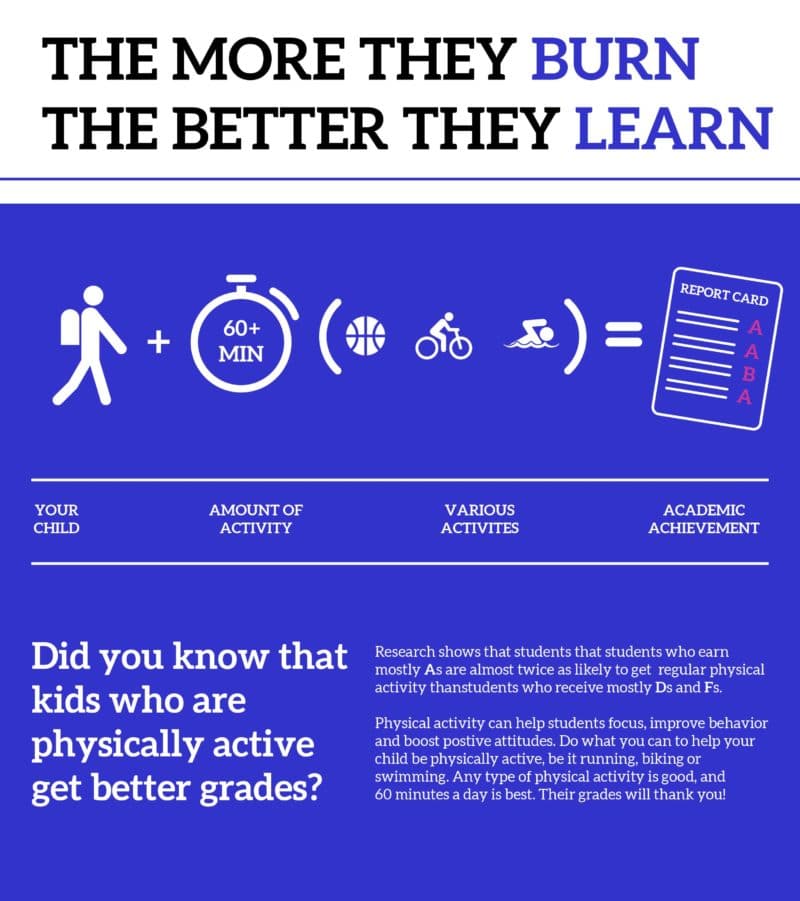Burn to Learn

The Centers for Disease Control (CDC) finds that children who earn As are more likely to exercise for 60 minutes per day compared to children who earn Ds and Fs. This is due to the relationship between physical activity and academic performance.
Exercise increases oxygen to the brain and increases the brain’s neurotransmitters, which helps your child’s ability to focus, learn, make memories, concentrate, and handle stressors.
Researchers at the University of Illinois noted how children who are consistently active do better at school and get higher grades on average compared to inactive children. Still, the CDC found that only 24 percent of children ages 6 to 17 get their needed 60 minutes of physical activity per day.
The problem with children not getting enough physical activity is that it affects their academic performance. Along with that, being inactive increases your child’s risk of being overweight and developing conditions such as cardiovascular disease, type 2 diabetes, certain cancers, and osteoporosis.
Not only is staying active important for your child’s grades, but it affects their sleep as well. Exercise makes it easier for your child to sleep at night, reduces daytime sleepiness, and prevents sleep disorders. A good night’s sleep helps your child perform well at school.
Help your child stay active by signing them up for active extracurriculars and reducing their screen time! And as a parent, you’re your child’s role model. Exercising regularly on a regular basis shows your child the importance of staying active and encourages them to mimic your actions.
Another way to keep your kid energized and excited to stay active is by ensuring they get enough sleep. Sleep and exercise have a bidirectional relationship, which means one affects the other. When your child sleeps well, they have the energy to remain physically active. When your child is active, their sleep quality improves. Good sleep also plays a large role in your child’s academic success.
Keeping your child active may help their grades and sleep quality. Help your child sleep better by getting them the best mattress for them, keeping electronics out of their room, and limiting sugary and salty snacks before bedtime. Improve their activity levels by giving them more physical chores (like dusting or mopping) and exercising along with them!
